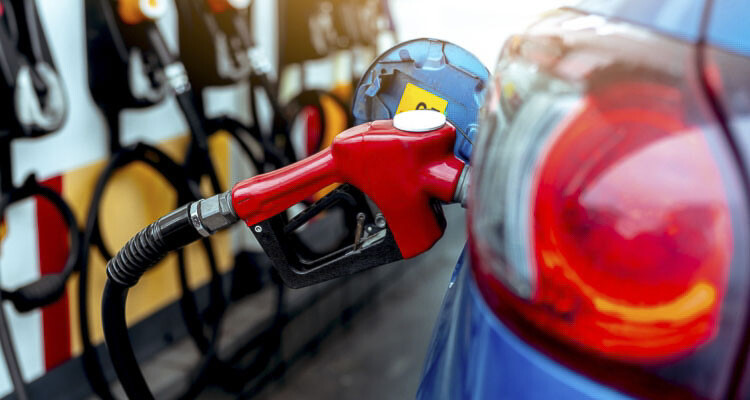
The average price of a gallon of regular unleaded was sitting at $4.89 statewide on Monday, up from $4.81 the week prior according to AAA data
Timothy Schumann
The Center Square Washington
Washington fuel prices took home the gold this week, surpassing California as the most expensive fuel market in the nation.
The average price of a gallon of regular unleaded was sitting at $4.89 statewide on Monday, up from $4.81 the week prior according to AAA data. This price hike marks the 20th week this year of rising fuel prices for Washingtonians, following the implementation of the new carbon tax earlier this year.
This eight cent per gallon increase moved opposite the national average, which decreased from $3.59 to $3.57 per gallon, a two-cent decrease over the same time period.
“We may be in a bit of a demand lull heading into the July Fourth holiday. Drivers are benefiting financially, with 20 gallons of gas costing nearly $30 less than last year. And with the cost for oil low, drivers will find pump prices that are flat or drifting slightly lower for now,” said AAA spokesperson Andrew Gross in a statement.
That may be true for the rest of the nation, but residents of the Evergreen State must dig deeper into their wallets than most. Despite the rest of the nation’s fuel pricing remaining stagnant, or even falling slightly, Washington’s continues to rise.
This change from weeks prior knocks California off the top of the pricing list nationally, where fuel prices currently sit at $4.86 per gallon, down four cents per gallon from the week prior.
Washington’s $4.89 per gallon places it $1.32 per gallon higher than the national average of $3.57 per gallon. It is also $1.90 per gallon above the nation’s least expensive fuel costs of $2.99 per gallon, currently paid by Mississippi residents.
In Washington, intra-state variance remains high at $1.12 per gallon, down three cents per gallon from the week prior. The outliers this week, again San Juan and Asotin counties, represent the most and least expensive gas prices statewide at $5.39 and $4.27 per gallon.
This price variance still largely follows the Cascade Range, with residents to the west paying a higher premium at the pump than residents to the east.
Some state policy experts think there’s a legislative component to the relatively high cost of Washingtonians fuel, as previously reported by The Center Square, citing the state’s new cap-and-trade carbon tax program implemented Jan. 1st of this year.
With the second carbon auction completed May 31st, and the results announced June 7th, one of those experts think that the legislative component added by cap-and-trade may be as high as 45 cents per gallon.
“Although Washington is paying more for CO2 emissions than California, that additional cost doesn’t help the environment – it just harms our economy,” said Todd Myers of the Washington Policy Center in a recent report. “As long as the governor and agency staff continue to deny that reality, Washington residents will pay a high price for energy, but won’t receive the environmental benefits they are paying for.”
This report was first published by The Center Square Washington.
Also read:
- Plan for overnight lane closures on I-5 near Ridgefield, May 12-23Drivers near Ridgefield should prepare for overnight I-5 lane closures May 12–23 during bridge work on the Pioneer Street overpass.
- Lawsuits associated with Michelle Belkot’s removal from C-TRAN board in holding patternsTwo lawsuits tied to Councilor Michelle Belkot’s removal from the C-TRAN board are awaiting court dates and could impact a key vote in July.
- Share Your Thoughts: IBR program holding online open house and public comment periodThe IBR Program is seeking public input on how it will handle impacts to historic and cultural sites during the upcoming bridge project.
- IBR only has single firm interested in managing the project to replace I-5 BridgeRep. John Ley reports on serious concerns with the I-5 Bridge replacement project, including limited contractor interest, rising tolls, and a 15-year timeline.
- Letter: ‘Something is wrong when our vote means nothing’Bob Zak challenges the political handling of the I-5 Bridge project and urges voters to demand accountability.









